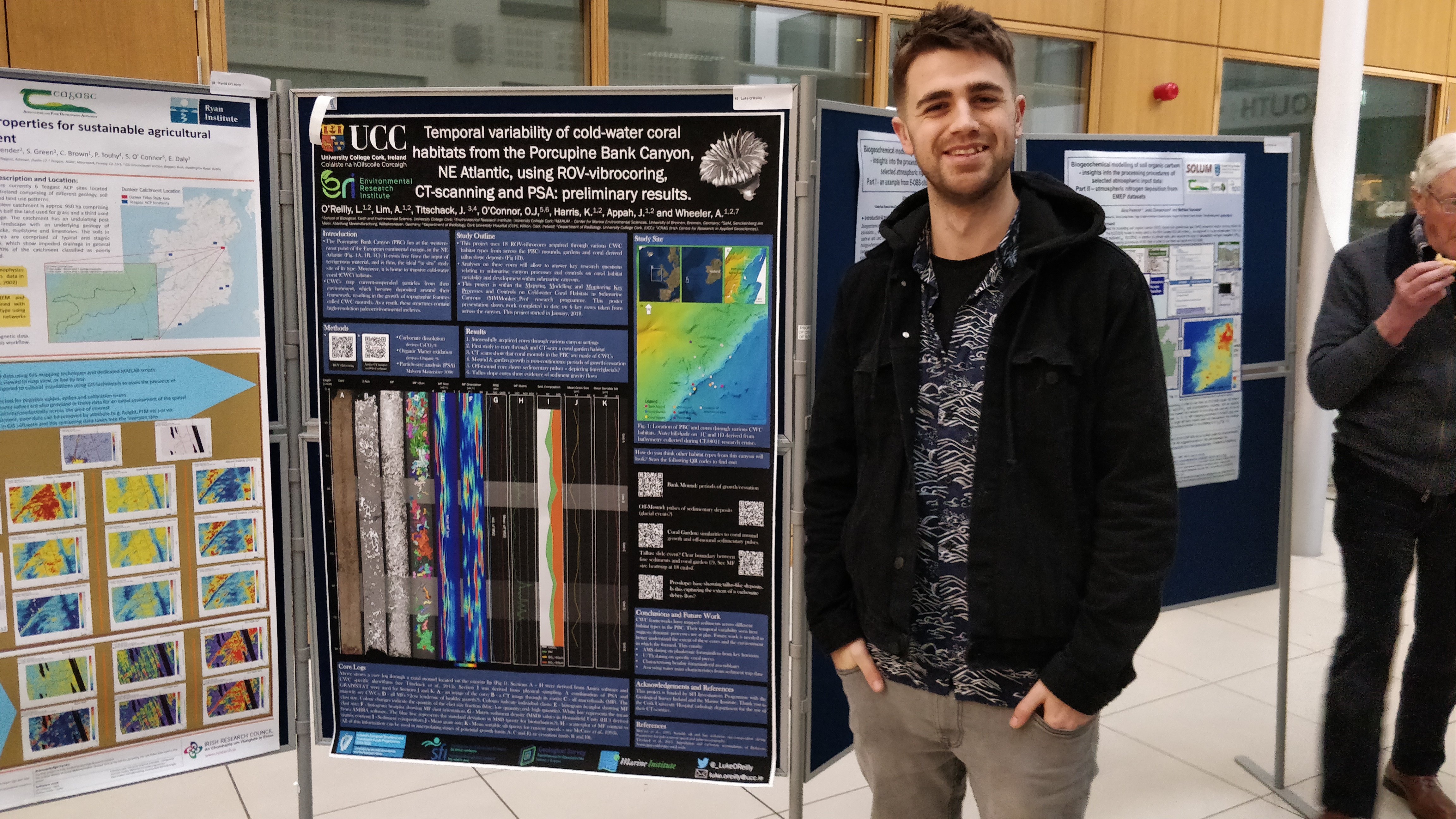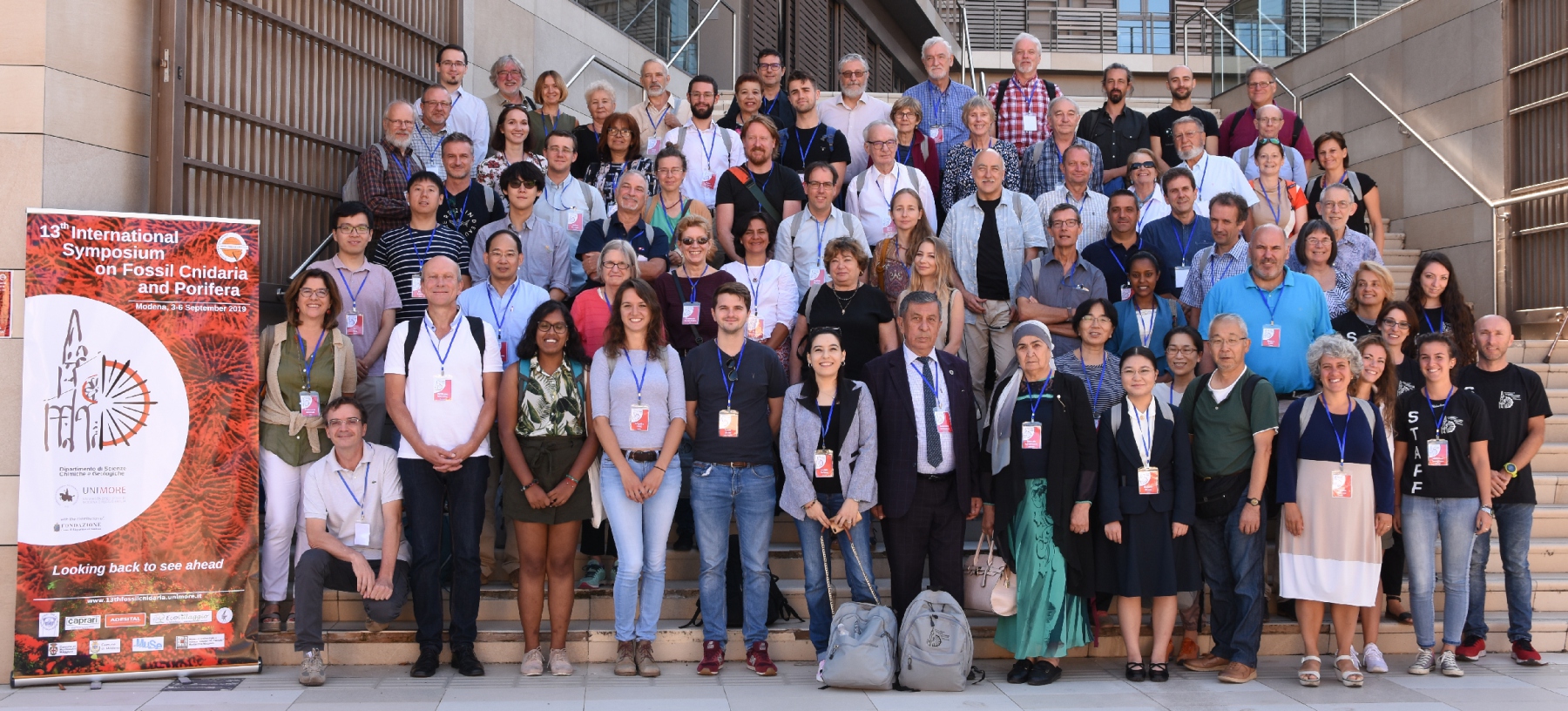The benefits of attending in-person conferences

Luke writes his thoughts on how in-person conferences helped his PhD journey
There are multiple benefits in attending in-person conferences. Apart from presenting, the most obvious benefit is networking. After a two-year hiatus from in-person events, are they really worth the effort? Yes.
In 2019, I attended the 13th International Symposium on Fossil Cnidaria and Porifera, in Modena, Italy. The trip was funded in part by the Marine Institute Networking and Travel grant, which is available to Irish postgraduates that need financial assistance to attend such events (so thanks once again to the MI for making the trip happen). A clear division was visible in the conference attendees: researchers who focus on fossils from tropical settings and researchers who focus on colder deeper environments. At least this was my lived version of reality, I’m sure others would say different.
To no surprise, I observed people of similar research backgrounds clump together at meetings. As my research falls into the “colder deeper environments”, I found myself among such folk. These researchers were people I knew from reading literature (for instance Foubert et al., Lopez-Correa et al., Raddatz et al, Rüggeberg et al., Taviani et al., Vertino et al. just to name a few), but were yet to put a face to the names. All of these people have written great papers on cold-water corals, and to see them in action was impressive. What did surprise me, was the level of support they provide to young researchers. They pulled me to the side after my presentation, gave feedback, a few suggestions and all that. They didn’t have to, but they did regardless.
I guess starting out in research and trying to wrap your head around these complex topics, you feel that the people who wrote the science, if they really knew how much you are struggling to understand their research, they would think you shouldn’t be doing a PhD. Truthfully, I still feel this way, 4 years on, in the last few weeks of my project. But now, I acknowledge that nobody knows everything about everything. And everybody starts somewhere. All of these people were in the same position as me at some stage. The key to it all is being resilient, keep on keeping on. And spell-check... spell-check definitely helps ;^)
A young French chap, by the name of Robin Fentimen, was attending the conference. At the time, a fourth year PhD, now a scientist working with the French nature reserve. His background of research was very similar to my own – cold-water corals and how they change through time. The one distinguishing factor between our research is simply that we study different geographic regions: Robin looks at corals from the Mediterranean, I look at corals off Ireland. My first time meeting the fella, I noted he was cheeky and was a good laugh. But knew his stuff.

Attendees of the 13th International Symposium of Fossil Cnidaria and Porifera. Luke & Robin are in the second row to the back!
At the conference, Robin introduced me to all the heavy hitters of cold-water coral research, to which I’m very grateful for. What I was more grateful for though, was his feedback on my work, but more so hearing his perspectives on his PhD, especially how he manages navigating the monumental mind game of it all. Over the spell in Italy, we became great compadres. We had the right amount of craic and the right amount of science.
During the pandemic, we kept in touch via skype. Few hour calls here and there. I even got Robin to speak for a webinar I was running at the time. Fast forward a few months, I was in the depths with drafting papers. On one of these skype calls, Robin announced he had a bit of spare time, and he could help me out on characterising benthic foraminifera in my samples. I nearly took his hand off with the offer and now, thanks to Robin, my head is now above water and I’ll get my PhD done in time. Should he had not offered, damn, I’m not sure I’d meet the deadline. So Robin, cheers dude.
I guess collaboration is key to research. Also, being sound goes a long way. There have been many people like Robin have come into my PhD career. Most notably Dr. Jürgen Titschack the CT and cold-water coral guru (who is giving a keynote at IGRM 2022, mind you). He’s a legend. Jürgen graciously took me under his wing in my first year, and always gets me out of a hole. He also makes killer tea and I consider him a friend.
I started this article with the aim of talking of the benefits of attending a conference, and its after turning it into a bit of a premature PhD acknowledgment section. So to bring it back around full circle: it definitely helps to attend in person conferences. People are great.
Would I recommend any upcoming conferences in Ireland? I would definately check out IGEO2022, organized for early career researchers, organised by early career researchers (myself included).
That’s all for now.
Luke
Marine Geosciences Research Group
University College Cork
Contact us
School of Biological, Earth and Environmental Sciences, North Mall Campus, University College Cork, North Mall, Cork City, T23 TK30
